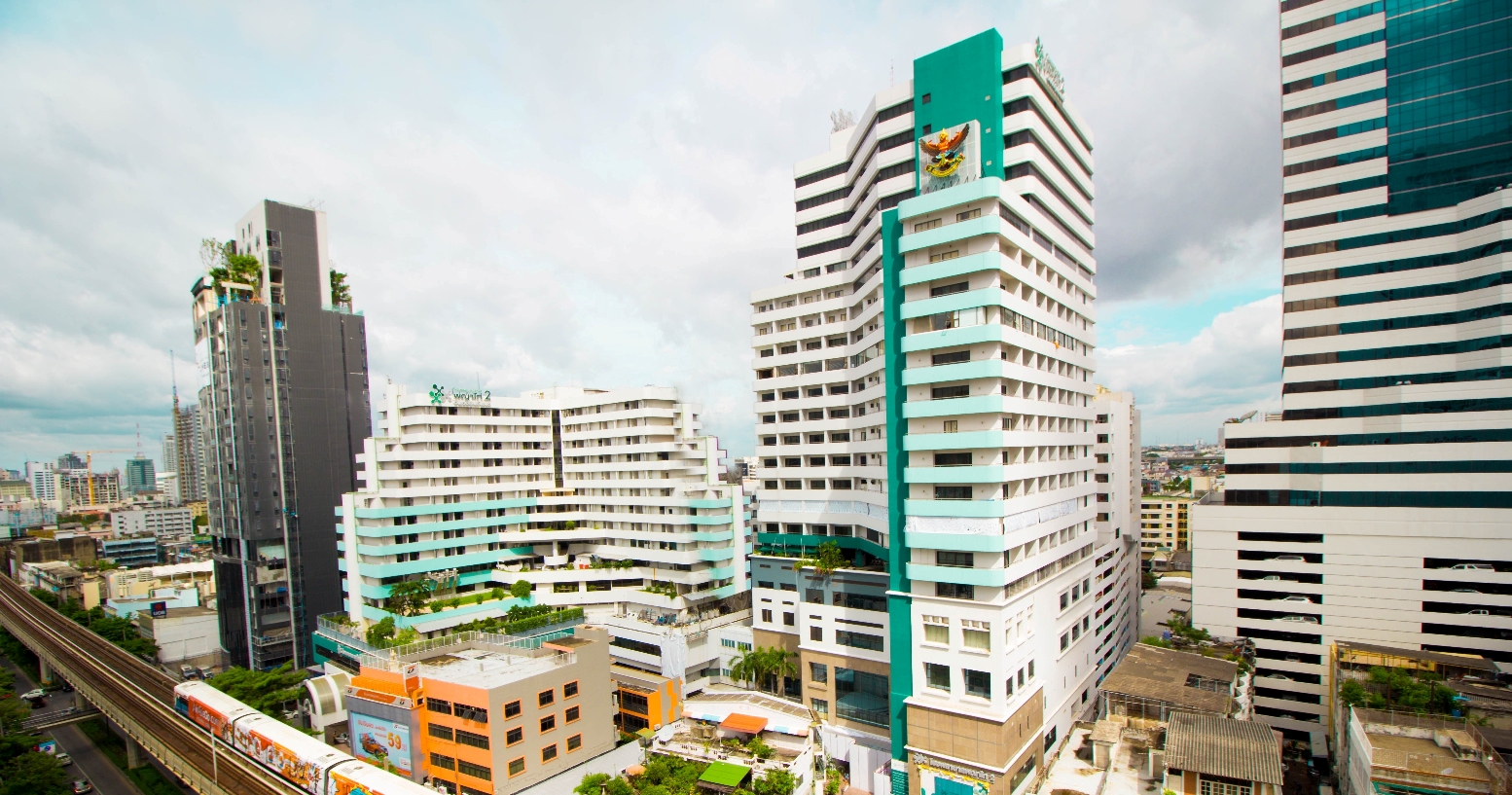
The Total Knee Replacement (Robotic) Treatment In Bangkok
07 Oct, 2023
 Healthtrip
Healthtrip1. Why Bangkok?
Bangkok, with its world-class healthcare facilities, is a top destination for medical tourists seeking quality treatment at competitive prices. Phyathai 2 International Hospital in Bangkok stands out for its expertise in Robotic Total Knee Replacement and its commitment to providing exceptional patient care.

Transform Your Beauty, Boost Your Confidence
Find the right cosmetic procedure for your needs.

We specialize in a wide range of cosmetic procedures

1.1. The Procedure
Total Knee Replacement (TKR), often performed with robotic assistance, is a surgical procedure aimed at replacing a damaged knee joint with an artificial implant. This cutting-edge technology enhances the precision and effectiveness of the surgery, resulting in better outcomes for patients.
1.2 Benefits
- Reduced pain and improved joint function: One of the primary goals of Robotic Total Knee Replacement is to alleviate chronic knee pain and restore normal joint function. This can significantly enhance a patient's quality of life, allowing them to engage in daily activities without pain or discomfort.
- Enhanced durability of the artificial knee: The materials used in modern knee implants are designed to be highly durable, ensuring that the new knee joint lasts for many years, if not decades. This longevity reduces the likelihood of future revisions or replacements.
- Minimally invasive approach for quicker recovery: Robotic-assisted surgery is known for its minimally invasive approach, which involves smaller incisions compared to traditional knee replacement surgery. This leads to less trauma to the surrounding tissues, reduced pain, and quicker recovery times. Patients can typically return to their normal activities sooner.
- Personalized surgical plans for optimal results: Each patient's anatomy and knee joint condition are unique. The robotic system at Phyathai 2 International Hospital is capable of creating a personalized surgical plan for every patient. This tailoring ensures that the surgery addresses the specific needs of the individual, resulting in optimal outcomes.
2.1 Package & Cost
2.2. Package Details
- Pre-operative assessments and consultations: Before undergoing surgery, patients receive thorough assessments and consultations with a team of orthopedic experts. This step ensures that the patient is a suitable candidate for Robotic Total Knee Replacement and helps tailor the surgical plan to their specific needs.
- Robotic Total Knee Replacement surgery: The core of the package is the state-of-the-art Robotic Total Knee Replacement surgery. This procedure involves the removal of damaged knee joint components and the precise placement of an artificial knee implant. The robotic system assists the surgeon in achieving unparalleled accuracy.
- Hospital stay with nursing care: Following the surgery, patients remain in the hospital under the care of experienced nurses. This ensures that patients receive the necessary attention and monitoring during the initial stages of recovery.
- Post-operative rehabilitation sessions: Rehabilitation is a crucial part of the recovery process. The package includes a series of rehabilitation sessions designed to help patients regain strength, range of motion, and functionality in their new knee joint.
- Medications and medical supplies: Patients receive medications to manage pain and reduce the risk of infections. Additionally, any required medical supplies for the hospital stay and early recovery period are provided.
2.3 Cost
The cost of Robotic Total Knee Replacement can vary based on several factors, including the complexity of the surgery, the type of implant used, and individual patient needs. It is recommended that interested patients contact Phyathai 2 International Hospital directly for a personalized cost estimate. The hospital's financial counselors can provide detailed information regarding the specific costs associated with the procedure and the package.
3. Symptoms
3.1. Common Symptoms Indicating the Need for Robotic Total Knee Replacement
- Severe knee pain, even at rest: Persistent and severe knee pain that disrupts daily life, even when at rest, can be an indication of advanced knee joint damage.
- Swelling and stiffness in the knee joint: Swelling and stiffness that limit the range of motion in the knee can be signs of underlying joint issues.
- Limited range of motion: Difficulty in fully extending or flexing the knee, resulting in reduced mobility.
- Difficulty in performing daily activities due to knee pain: When knee pain interferes with everyday activities such as walking, climbing stairs, or getting up from a seated position, it may be time to consider knee replacement.
- Ineffectiveness of non-surgical treatments: If conservative treatments such as medications, physical therapy, and injections have failed to provide significant relief from knee pain and dysfunction, Robotic Total Knee Replacement may be a viable solution.
4. Causes
4.1. Leading Causes of Knee Joint Damage Requiring Replacement
- Osteoarthritis: This degenerative joint disease is one of the most common causes of knee joint damage. It occurs when the protective cartilage that cushions the ends of the bones in the knee deteriorates over time, leading to pain, swelling, and stiffness.
- Rheumatoid arthritis: Rheumatoid arthritis is an autoimmune disorder that affects joints, including the knees. It can cause inflammation, pain, and damage to the joint lining and cartilage.
- Post-traumatic injuries: Injuries such as fractures, ligament tears, or significant trauma to the knee joint can result in long-term damage that may necessitate knee replacement.
- Other degenerative conditions: Various other degenerative conditions, such as avascular necrosis, gout, and certain genetic disorders, can lead to knee joint damage and the need for replacement.
5. Diagnosis
5.1 Diagnostic Steps Before Robotic Total Knee Replacement
- Medical History: The diagnostic process typically begins with a detailed review of the patient's medical history. This includes gathering information about the patient's symptoms, previous knee injuries or surgeries, and any existing medical conditions.
- Physical Examination: A thorough physical examination of the affected knee is conducted. The physician assesses the knee's condition, checking for signs of swelling, deformities, and limitations in range of motion.
- Imaging: Imaging tests, such as X-rays, MRI scans, or CT scans, are commonly used to assess the extent of knee joint damage. These images provide a clear view of the bones, cartilage, and soft tissues in and around the knee.
- Blood Tests: Blood tests may be performed to rule out infections or other underlying conditions that could affect the outcome of the surgery or the patient's overall health.
The combination of these diagnostic steps allows the medical team to determine the severity of the knee joint damage and the appropriateness of Robotic Total Knee Replacement as a treatment option.
6. Factors Affecting Robotic Total Knee Replacement
6.1. Factors to Consider Before Surgery
- Overall health and fitness of the patient: The patient's overall health is a crucial factor. The surgical team assesses the patient's fitness for surgery and considers any underlying medical conditions that may impact the procedure.
- Age and lifestyle: While age itself is not a barrier to knee replacement, the patient's age can influence the decision-making process. Additionally, the patient's lifestyle and activity level play a role in determining the timing and necessity of surgery.
- Severity of knee joint damage: The extent of knee joint damage, as determined through diagnostic tests, guides the decision to proceed with Robotic Total Knee Replacement. Advanced joint damage that significantly impairs function often indicates the need for surgery.
- Surgeon's recommendation: The orthopedic surgeon's expertise and recommendation are paramount. They consider all relevant factors and tailor the treatment plan to meet the patient's specific needs.
- Patient's commitment to post-operative rehabilitation: Successful recovery and long-term outcomes depend on the patient's commitment to post-operative rehabilitation. Following the prescribed rehabilitation plan and attending all necessary sessions is crucial for achieving the best results.
7.Testimonials
Patient Success Stories
John M., 58, USA
"After years of enduring excruciating knee pain, I decided to undergo Robotic Total Knee Replacement at Phyathai 2 International Hospital in Bangkok. The precision and expertise of the surgical team were beyond impressive. The robotic-assisted procedure gave me newfound hope for a pain-free life. To my surprise, the recovery process was smoother and quicker than I had ever imagined. I am back to enjoying my active lifestyle without the constant burden of knee pain. My heartfelt thanks to the remarkable team at Phyathai 2!"
Sarah K., 65, UK
"The journey to regain my mobility and freedom from knee pain led me to Phyathai 2 International Hospital. The personalized care, professionalism, and commitment of the medical staff were truly outstanding. My Robotic Total Knee Replacement was a life-changing experience. I can't thank the hospital enough for giving me a new lease on life. I now savor each step without the limitations I once faced. Choosing Phyathai 2 International Hospital was the best decision I ever made.
In conclusion, Robotic Total Knee Replacement at Phyathai 2 International Hospital in Bangkok is a transformative solution for individuals suffering from severe knee pain and joint damage. The comprehensive package, including diagnostics, surgery, and rehabilitation, ensures that patients receive the best care possible. This innovative approach to knee replacement offers numerous benefits, including reduced pain, improved joint function, and a quicker return to an active life.
If you or a loved one is facing the challenges of knee joint damage, consider the possibilities of Robotic Total Knee Replacement and the exceptional care available at Phyathai 2 International Hospital. Don't let knee pain hold you back; take the first step toward a pain-free future.
For appointments and more information, you can visit Healthtrip
Read More A Closer Look at Heart Bypass Surgery in Bangkok (healthtrip.com)
Most popular procedures in
Total Hip Replacemen
Upto 80% off
90% Rated
Satisfactory

Total Hip Replacemen
Upto 80% off
90% Rated
Satisfactory

Breast Cancer Surger
Upto 80% off
90% Rated
Satisfactory

Total Knee Replaceme
Upto 80% off
90% Rated
Satisfactory

Total Knee Replaceme
Upto 80% off
90% Rated
Satisfactory

Wellness Treatment
Give yourself the time to relax
Lowest Prices Guaranteed!

Lowest Prices Guaranteed!




